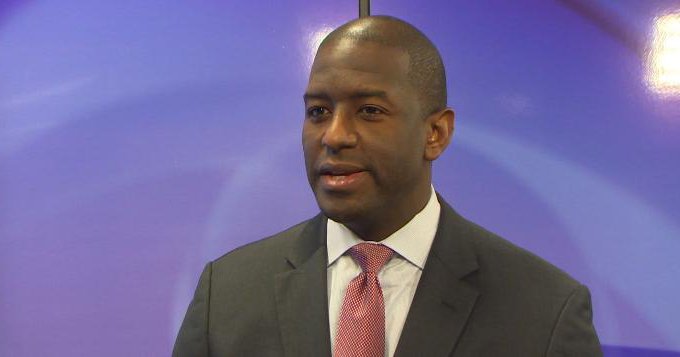Progressive Democrat Andrew Gillum’s tax plan proposals "would adversely impact the business climate of the state" if he is elected governor, costing Florida 155,000 jobs and $28.2 billion in economic loses per year, according to the James Madison Institute (JMI), a Tallahassee-based conservative think-tank.
Conversely, JMI maintains, conservative Republican gubernatorial candidate Ron DeSantis’ tax plan proposals, which include eliminating the state’s Business Rental Tax, would "lead to the creation of 215,000 jobs annually and $26.6 billion in annual economic output."
"DeSantis has pledged to continue to cut taxes," JMI VP President for Policy and Director of its Center For Economic Prosperity Sal Nuzzo told Watchdog News. "We think his proposals are more favorable for economic growth."
JMI analyzed Gillum’s and DeSantis’ tax plans with the assistance of two financial consulting firms, the Washington Economics Group of Coral Gables and Arduin, Laffer & Moore of Tallahassee.
...
Gillum’s plan to raise the rate to 7.75 percent retains the exemption from paying any tax on a corporation’s first $50,000 in taxable income. C-Corporations with less than $50,000 income annually would be exempt, as would all S-Corporations and limited liability corporations.
According to the state’s Department of Revenue, there are more than 200,000 businesses that pay Florida’s 5.5 percent corporate tax rate, collecting about $2.2 billion annually. It’s the state’s second biggest source of general revenue dollars, other than the $25 billion raised by the sales tax.
This means "98 percent of businesses would still pay no corporate income tax, and that 2-3 percent of C-Corporations that would be subject to any new tax would still pay 83.9 percent less overall in corporate taxes than they were charged in the last eight years under Republican Gov. Rick Scott," Gillum’s campaign maintains.
Gillum’s tax proposal has drawn fire from a wide range of business groups, as well as the Republican Governors Association and Americans for Tax Reform. JMI’s study shows there is merit beyond partisanship with those concerns.
Previously:






